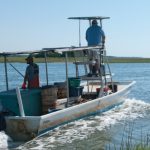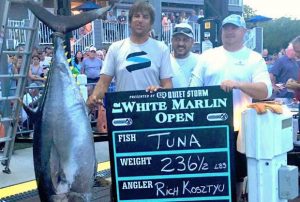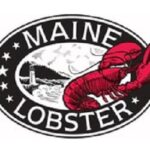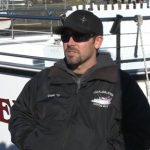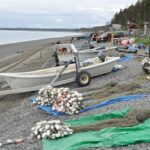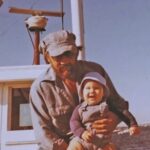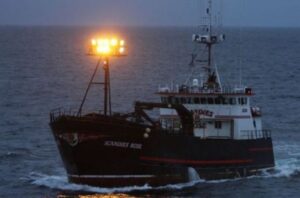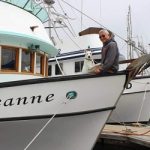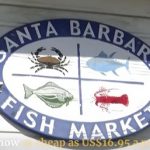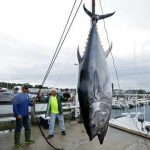Daily Archives: September 30, 2023
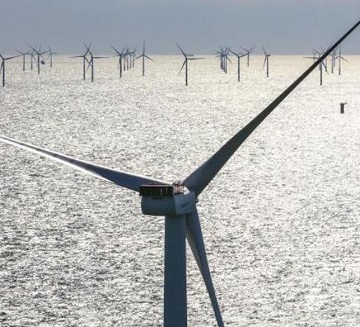
Jersey Shore mobilises against offshore wind power
Soaring costs, high interest rates and clogged supply chains have buffeted the offshore wind power industry as it tries to expand from Europe to the US east coast. Add to these another obstacle: increasingly vocal and organized opponents who live or work along the beachfront. Their campaign threatens to slow down the Biden administration’s push to reach 30 gigawatts of offshore wind capacity by 2030, up from a minimal amount today. They are nowhere more active than in New Jersey, whose own goal of 11GW by 2040 is the most ambitious of any eastern state. “[We] will do whatever it takes to stop this,” said Paul Kanitra, the mayor of Point Pleasant Beach, New Jersey. “If that means lawsuits, we’ll do lawsuits. If that means we literally need to form a flotilla and go out there and stop it ourselves, we’ll do that as well.” The opponents raise fears of harm to marine life and fisheries, and ocean views marred by spinning wind turbines. They have formed groups with names such as Protect Our Coast NJ and Save Long Beach Island. >>click to read<< 16:43
Skipjacks, oysters: The fight for survival of two Chesapeake Bay icons
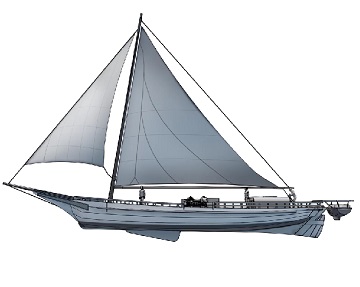 Starting Sunday, oyster enthusiasts will once again be free to pick up their rakes and tongs and harvest Maryland’s signature shellfish delicacy from the floor of the Chesapeake Bay and its tributaries.A month after the season begins, commercial oyster fisherman will take to the water to get their own haul. But one boat will stand out among from the rest: the skipjack, a nimble oyster-dredging sailboat that represents the state’s long maritime tradition. “The oysters are looking better. I’m optimistic,” said Shawn Ridgley, a veteran oysterman and skipjack captain who currently gathers data for the Maryland Department of Natural Resources. A typical skipjack carries a crew of five and can legally harvest 100 bushels of oysters a day. Lately, “boats are catching their limit by 10:00, 10:30 in the morning,” Ridgley said. >>click to read<< 14:05
Starting Sunday, oyster enthusiasts will once again be free to pick up their rakes and tongs and harvest Maryland’s signature shellfish delicacy from the floor of the Chesapeake Bay and its tributaries.A month after the season begins, commercial oyster fisherman will take to the water to get their own haul. But one boat will stand out among from the rest: the skipjack, a nimble oyster-dredging sailboat that represents the state’s long maritime tradition. “The oysters are looking better. I’m optimistic,” said Shawn Ridgley, a veteran oysterman and skipjack captain who currently gathers data for the Maryland Department of Natural Resources. A typical skipjack carries a crew of five and can legally harvest 100 bushels of oysters a day. Lately, “boats are catching their limit by 10:00, 10:30 in the morning,” Ridgley said. >>click to read<< 14:05
Alaska: 8 People Were Murdered Aboard a Fishing Boat. Though It’s the State’s Most Infamous Mass Killing, It’s Also Unsolved.
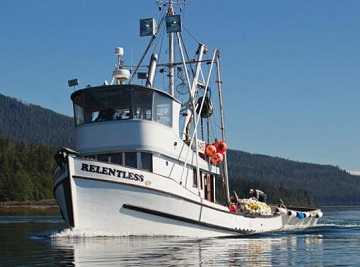 It was the men who worked on a troller named “Casino” who first noticed the fire. Thick black smoke was rising high against the misty skies of a crisp fall afternoon. A “Casino” crewmember alerted authorities in nearby Craig, Alaska, then rode their fishing boat less than a mile across the water to see if they could help. Their destination was Fish Egg Island, on the west side of Prince of Wales Island. It’s been over 40 years since the fire, the investigation and the discovery of the largest mass murder in the history of the state of Alaska. The tragedy goes unsolved, despite two trials. Residents of the fishing village of Craig have heard all the theories about who committed the horrible crimes that obliterated an entire family. Eight people were living aboard, half of whom were members of the Coulthurst family. Fishing boat veterans who had no known enemies and piloted a beautiful seine admired by the local fishing fleet. >>click to read<< 11:31
It was the men who worked on a troller named “Casino” who first noticed the fire. Thick black smoke was rising high against the misty skies of a crisp fall afternoon. A “Casino” crewmember alerted authorities in nearby Craig, Alaska, then rode their fishing boat less than a mile across the water to see if they could help. Their destination was Fish Egg Island, on the west side of Prince of Wales Island. It’s been over 40 years since the fire, the investigation and the discovery of the largest mass murder in the history of the state of Alaska. The tragedy goes unsolved, despite two trials. Residents of the fishing village of Craig have heard all the theories about who committed the horrible crimes that obliterated an entire family. Eight people were living aboard, half of whom were members of the Coulthurst family. Fishing boat veterans who had no known enemies and piloted a beautiful seine admired by the local fishing fleet. >>click to read<< 11:31
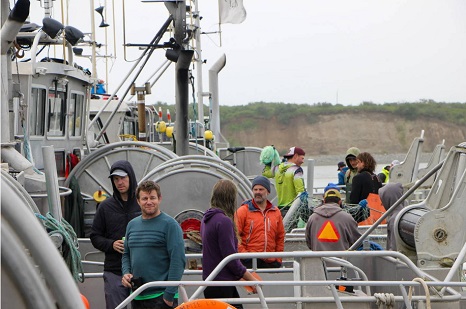
A 50-year situation: the market dynamic between fishing fleets and processors in Bristol Bay
This year, Bristol Bay’s 50 cents per pound base price had fleet members questioning the industry’s longevity. The dynamic between fleets and processors has existed for decades, with permit-holding fishing crews delivering their catch before knowing its cost, and processors relying on them to do so. KDLG’s Christina McDermott sat down with economist Gunnar Knapp, who spent decades studying Bristol Bay’s salmon markets, to learn more about the history of this relationship, and what it means going forward. Christina McDermott: Just a little background: this past summer, many fleet members were upset when the price was announced at 50 cents per pound, which is the lowest in the past 40 years when adjusted for inflation. The announcement came fairly late in the season. There was protest, and there was a lot of discussion on the processors’ respective power to set that price. And I’m interested in going back a little bit. What opportunities [did] the fleet have to sell their fish 50 years ago, let’s say, or 20 years ago? Has it always [been] this relationship [that] there are these processors and there are these fishermen? >>click to read<< 10:00
At Mackerel Cove wharf, Arizona-based lobster chain learns as it grows
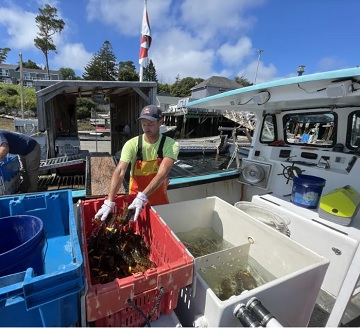 There, an upstart fast food company called Angie’s Lobster offers rolls filled with a quarter-pound of New England’s favorite crustacean that’s served warm and buttered, chilled, grilled or fried. Add in a drink, fries and their trademark sauce and the total comes to — wait for it — $9.99. Is there a catch? Yep, in more ways than one. It all begins with Harpswell lobster boats and a historic wharf nestled into Mackerel Cove on Bailey Island. In the summer of 2022, Angie’s bought a long-standing family lobster pound there and established the first link in a supply chain that is bringing Vacationland lobster to Arizona drive-thru diners at eye-poppingly low prices. Tony Christofellis, who founded the company and named it for his late mother, says business is good and getting better. He says buying the Bailey Island wharf was “the coolest thing we’ve ever done.” Photos, >>click to read<< 08:10
There, an upstart fast food company called Angie’s Lobster offers rolls filled with a quarter-pound of New England’s favorite crustacean that’s served warm and buttered, chilled, grilled or fried. Add in a drink, fries and their trademark sauce and the total comes to — wait for it — $9.99. Is there a catch? Yep, in more ways than one. It all begins with Harpswell lobster boats and a historic wharf nestled into Mackerel Cove on Bailey Island. In the summer of 2022, Angie’s bought a long-standing family lobster pound there and established the first link in a supply chain that is bringing Vacationland lobster to Arizona drive-thru diners at eye-poppingly low prices. Tony Christofellis, who founded the company and named it for his late mother, says business is good and getting better. He says buying the Bailey Island wharf was “the coolest thing we’ve ever done.” Photos, >>click to read<< 08:10

































